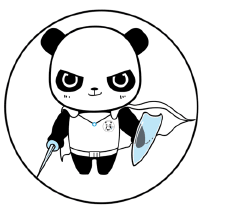Ring Flash: The achievement of a new design Edited by brian_rodrigues at 2016-05-13 10:57

While designing the new Pro 6, the Meizu designer team had a new challenge in front of them, that is not to repeat the same design language again. Hence was created the new PRO6. With the PRO6 launched, we see a lot of new changes and differences in the overall design from its predecessor including a new color, new antenna design, and also a new designed flash ring etc. 
Based on aesthetics, the Meizu designers had made a decision that the LED flash and Laser auto-focus unit must be integrated in such a manner that the visual elements at the back of the phone look more unified and the back of the phone has an higher overall aesthetics than its previous generation designs. 
Integrated Laser auto-focus and Flash unit in MX5 Long before the birth of the ring flash, Meizu designers and engineers had already made an attempt in this direction of integration. The MX5 and the PRO5 had an integrated dual flash and laser assisted autofocus which was a product of this design concept. But for the PRO6 flash, the design team felt that this could be made better and thus they came up with a bold idea - a Ring flash. In the ring flash, the autofocus module including the flash were meant to be perfectly aligned to form a concentric circle thus making the visual appearance better and to make the phone look even more attractive. But the necessary hardware was required in order to achieve the specific design and hence the design team were a bit in a doubt and hesitant about this design in the beginning. This was because such a combination of laser autofocus and a ring flash were never done before by any other smartphone manufacturers and hence the difficulty level in achieving this was very high. 
The number of LED increased from 2 LED to 10 LED While taking the various factors into consideration, the imaging team certainly had another advantage of such a development. Since the flash was placed in the outer concentric circles, the available area for placement of flash increased in order to increase the number of LED lights as much as possible. Prior to this, the imaging team had been studying on how to improve the performance of the flash and so the Ring flash was set to meet the program requirements of two teams. Hence both the teams collectively decided to implement this design. 
The upgraded Laser auto-focus unit The Ring Flash design has a lot of parts involved. The engineers at imaging team tested on several LED flash lights, light-emitting area, arrangement and placement of the LED lights, the distance between each light etc. so that the final product involved a lot of details due to all the computing improvements involved during the testing phase. The engineers got each LED circuit configured independent so that each of the LED lights can be individually controlled, so that it could respond better to any lighting conditions. 
The evolution of Ring flash designs The engineers at Meizu tested various trial production pieces before arriving at a final design which was meant to be flawless. The engineers also revealed another thing that the production cost of the final design was nearly 7 times that of the original design after which the ring flash was finally able to appear in the PRO6. The engineers were of the opinion that rather than 7 times the cost, the better user experience was more important. | |
|
|
|
|
Star wars : Laser focuser :) // Meizu Veryy Good Product. Thank For İnformation
| |
|
|
|
anky17cool replied at 2016-05-24 11:47 haha... I said hope you get the phone soon and surprisingly you won one the very next day bro... You should thank me for my extraordinarily lucky words for you... | |
|
|
|
brian_rodrigues replied at 2016-05-23 18:28 I doubt can ever get it in India...but just hoping it does come to India | |
|
|
|
anky17cool replied at 2016-05-23 12:20 Hope you get the phone soon... | |
|
|
|
|
Would like to see the end results with this flash
| |
|
|
|
|
Can't wait to see more on future update
| |
|
|
|
|
Ring flash... Truly marvelous..
| |
|
|
|
|
Thanks for all the engineering and design teams for making it possible
| |
|
|
|
|
wow this new ring flash is pretty nice...
| |
|
|
|
|
That's why "Beauty with the Brain" should be tag line of the Pro 6.
| |
|
|
|
















































19